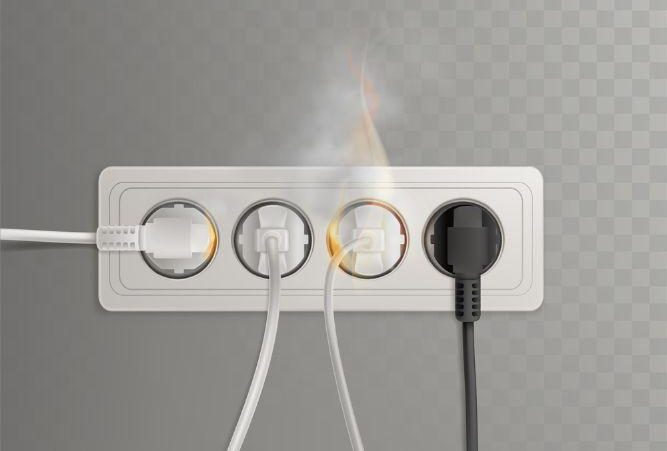No one likes to think about their household appliances as risky. And, in general, they’re not. But unfortunately, even with modern safeguards and advances in technology, the fact remains that electricity can still be dangerous under the wrong circumstances.
Since household appliances rely on electricity, it’s critical to maintain them regularly and pay close attention to anything out of the ordinary. It’s also important to ensure that your home’s wiring and electrical outlets are in top condition.
In this post, we’ll take a look at a few of the ways you can keep an eye on your home and appliances to prevent them from becoming electrical hazards:
Actively Manage Your Plugs, Cords, and Wires
It can be tempting to just get everything plugged in and then forget about it, but plugs, cords, and wires need to be safely and actively managed.
Make sure that cords are properly bundled, reduce the need for extension cords wherever possible, and check that plugs are fully connected and not under stress (e.g., pulling). Also, be sure to use tamper-resistant outlet covers if you have small children in the home and install GFCIs (ground fault circuit interrupters) in older homes; these are outlets that shut off instantaneously if they detect current leakages, such as from exposure to water.
Check appliance cords and plugs regularly for wear and tear, and if you discover frayed cords or exposed wires anywhere in your home, repair or replace them immediately.
Pay Attention to Tripped Breakers
If a particular appliance keeps tripping your breaker, don’t ignore it. Circuit breakers are your home’s safety mechanism, and this is an indicator that something is wrong with the electricity in your appliance. Unplug it and have it looked at by a professional before you resume use.
Keep Appliances Dry
No matter the appliance, dry is always best. Water increases conductivity, and electricity mixed with water should be avoided at all costs. Keep your hands dry when using appliances, and be sure to unplug them before washing them. If you experience excess water in your home (e.g., a spill, leak, or flood), be sure to have a professional disconnect all appliances before you come in contact with the water.
Keep Household Pests in Check
This one may seem a little far-fetched, but in reality, it’s not. Pests like rodents and insects can chew appliance cables or damage the electrical wiring in your home in other ways. Keep pests in check and have an electrician examine your home if you suspect there may have been pest-related damage in your walls. This could also be a great time to update old or otherwise faulty wiring.
Treat Appliances With Respect
Our appliances do a lot for us, so we should treat them well in return. Plus, treating appliances with the respect they deserve can reduce any associated risks. Aside from regular maintenance, it’s always a good idea to unplug appliances when they’re not in use. This can give them a break and also avoid damage from power surges. Likewise, follow appliance recommendations carefully. For example, pay attention to the wattage of light bulbs and specifications for other replacement parts too.
Leave Repairs to the Professionals
While it may be tempting to get into a DIY mode, it’s always safest to leave repairs to trained technicians. If you’re seeking reliable appliance repair in Winnipeg, get in touch with us at Mike’s Quality Appliance Repair today!

